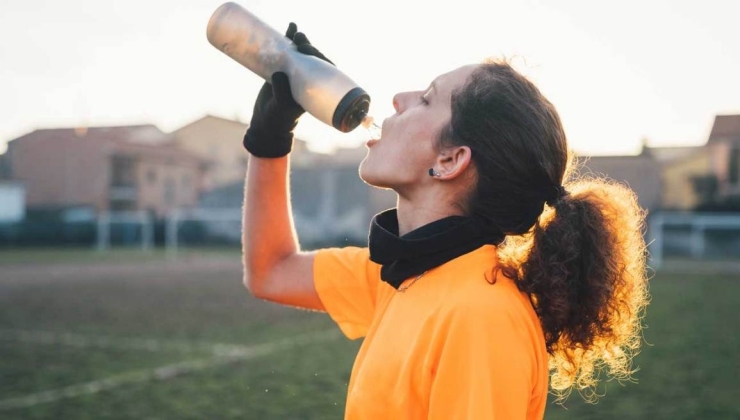In health and wellness, electrolyte-infused water has become popular among fitness enthusiasts, athletes, and casual consumers. Promoted for its ability to enhance hydration, improve performance, and aid recovery, it’s marketed as a superior alternative to plain water. But amidst the buzz, it’s essential to separate facts from myths to make informed choices about your hydration needs.
What Are Electrolytes?
Electrolytes are minerals that carry an electric charge, crucial for various bodily functions. Common electrolytes include sodium, potassium, calcium, magnesium, chloride, and bicarbonate. They play a vital role in maintaining fluid balance, muscle function, nerve signalling, and acid-base balance in the body.
The Role of Electrolyte-Infused Water
Electrolyte-infused water is water enhanced with these essential minerals. It’s designed to replenish electrolytes lost through sweat, urine, and other bodily fluids, especially during intense physical activities. Here’s a look at some typical claims and the realities behind them:
Fact: Enhanced Hydration
Claim: Electrolyte-infused water hydrates better than regular water.
Reality: This claim is valid, particularly in scenarios involving significant electrolyte loss, such as during strenuous exercise or in hot climates. Electrolytes help retain fluid in your body and ensure your cells are well-hydrated. For athletes or individuals engaging in prolonged physical activity, electrolyte-infused water can be more effective than plain water in preventing dehydration.
Myth: Necessary for Everyone
Claim: Everyone should drink electrolyte-infused water daily.
Reality: Plain water is sufficient to stay hydrated for most people. The average person who eats a balanced diet and regular, moderate exercise typically gets enough electrolytes from their food. Electrolyte-infused water is primarily beneficial for those involved in high-intensity workouts, endurance sports, or those who have specific medical needs.
Fact: Can Aid Recovery
Claim: It helps with faster recovery post-exercise.
Reality: After intense physical activity, your body loses water and electrolytes through sweat. Replenishing these lost electrolytes can help reduce muscle cramps, fatigue, and dehydration, aiding in faster recovery. Electrolyte-infused water can be particularly effective when consumed during and after workouts.
Myth: Better for Weight Loss
Claim: Drinking electrolyte-infused water can help with weight loss.
Reality: There’s no direct link between electrolyte-infused water and weight loss. While staying hydrated can support overall health and potentially aid weight management, electrolytes do not contribute to weight loss. The primary benefits are hydration and maintaining bodily functions rather than shedding pounds.
Fact: Beneficial in Illness
Claim: It helps when you are sick.
Reality: Electrolyte-infused water can be beneficial when you are ill, especially with conditions like vomiting, diarrhea, or fever, when you lose significant fluids and electrolytes. It helps prevent dehydration and maintain electrolyte balance, which is crucial for recovery.
Myth: All Electrolyte Waters Are the Same
Claim: All electrolyte-infused waters offer the same benefits.
Reality: Not all electrolyte waters are created equal. The composition and concentration of electrolytes can vary significantly between brands. Some may contain added sugars, artificial flavours, and preservatives, which could counteract the health benefits. It’s essential to read labels and choose products with minimal additives and appropriate electrolyte content.
Choosing the Right Electrolyte-Infused Water
When selecting electrolyte-infused water, consider your lifestyle and specific hydration needs. Plain water and a balanced diet are usually sufficient for everyday hydration. For athletes or those engaged in rigorous physical activities, look for products with a balanced mix of sodium, potassium, magnesium, and calcium. Avoid options with high sugar content and artificial ingredients.
Conclusion
Electrolyte-infused water offers genuine benefits, particularly for those who lose significant fluids and electrolytes through intense physical activity or illness. However, it’s not a necessity for everyone. Understanding the facts and myths surrounding this trendy beverage can help you make informed decisions tailored to your lifestyle and health needs. Hydration is crucial, but the best approach varies from person to person. Choose wisely and stay informed to ensure optimal health and hydration.

